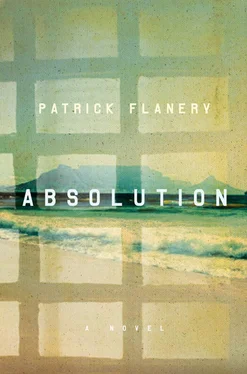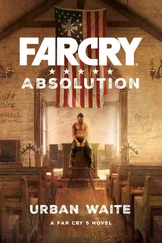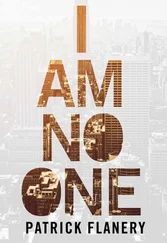‘Aisyah.’
‘I am told that is her name.’
‘I’d be lying if I said I had a totally easy relationship with her. She acts as though she expects white people to treat her like a maid, and then she goes and acts like one anyway: lots of milk and four sugars in her coffee. She doesn’t like me at all, I think, and can’t stand Coleen or the kids. She dotes on Dad day and night — half-maid, half-concubine. It’s quite disgusting.’
‘Now you sound like the reactionary. If your colleagues could hear you …’
‘You’ve already tricked me into saying too much already. I don’t like it when you put me in the middle. Dad does it too.’
‘I’m surprised he would ask about me.’
‘He wants to know that you’re okay, that’s all. After the robbery he was very concerned, but didn’t know what to do to help.’
‘He always used to know exactly what to do. He eventually reached a level of awareness with me whereby he could anticipate what needed to be done before I had even thought to frame the request. He was truly intuitive in that way — Marie has the same talent. With others — the men I knew before marrying your father, men dependent on me and astonishing in their ultimate indifference — independence was my passport and papers of freedom. If I could do for myself, then I knew I was free to escape situations that became untenable. If I had enough money in order to eat and to find somewhere warm and dry to spend each night, whether or not that involved sleep, it was enough at the time. These kinds of attitudes are possible when one is young and unattached, unencumbered by issue or the responsibility of relationships made legal, the slow accumulation of things that accrue meaning, endowed with sentiment knowable only to their owner, things that define what one may do, where one may go, what one may risk. I have never been a great one for objects or trifles. As the collection has grown, it’s been the library that matters, and the few belongings from my parents and grandparents that I have chosen to keep.’
Clare noticed Mark checking his watch beneath the table, as if he thought she couldn’t see. At the same moment Adam came round the house from the garage carrying a strimmer. Clare felt the mountain pressing against her back, the sun burning layers from her face.
‘One tells him not to mow and he finds some other way to make a noise. I suppose one shouldn’t fault the industrious,’ Clare said, turning back to her son, who was still wheezing but was too proud to excuse himself. ‘We’ve run out of time. You have your appointments.’
*
‘You are back sooner than you indicated you would be,’ Clare said as Mark let himself in the front door that evening. For a moment earlier in the day she had toyed with the idea of changing the alarm code and the locks, and then realized how unreasonable that would seem to anyone but her. It was one thing to love one’s children, quite another to cede them unconditional access to one’s life, as she unthinkingly had done. In truth, she had no memory of giving Mark a key to her house — neither a key nor the code to the alarm. If only she could undo that breach without offending him. She knew, however, that he was quick to take offence, to see a slight where none was intended. How he screamed as a child, shouting threats to sue his friends, his teachers, even his parents and grandparents and siblings — how like his Aunt Nora he had been, it occurred to Clare for the first time. ‘I wasn’t expecting you for another hour at least,’ she said, leaning over to be kissed. He did this with dutiful quickness, as though he found the contact almost repellent. ‘Dinner is not, therefore, anything like ready. I suppose you must be hungry. I suppose you expect to be fed all week. Are you staying all week? Are you hungry?’
‘I am, Mother, but why don’t you let me do it? I’m quite a capable cook,’ he said, and kissed her other cheek.
‘There’s no cooking to be done apart from turning on the oven and putting the defrosted meal into it. You might make a salad. Or do you eat salads?’ She glanced at his waist, worrying about his heart as she had since he was a child. He no longer spoke to her about his health, though she knew there had been surgeries in recent years. ‘What were you doing today?’
‘As you know, I was meeting with some clients.’ Following her through to the kitchen, he stood watching as Clare took a head of iceberg lettuce and an avocado and two tomatoes from the refrigerator. ‘That avo isn’t ripe, Mother. You should put it out with some bananas in a paper bag.’
Clare looked at his plump hands and the jaw that had lately begun to lose definition, and put the avocado back in the refrigerator.
Out of respect for Mark’s unwavering belief in confidentiality, she had learned not to ask him prying questions about his work. Most of the cases he undertook involved defending individuals’ rights to privacy as enshrined in the country’s new constitution. Sometimes the cases had surprised her, such as one in which the claimant argued that the right to privacy protected his work as a prostitute. Mark had lost the case, but argued passionately on behalf of the young man, who contracted HIV during his brief incarceration and for want of adequate medical treatment died of an AIDS-related illness not long after his release.
Clare had attended the hearing at the Constitutional Court — her first visit there, still in the court’s early days — and found that she was both moved and bewildered by the physical space and the institution it housed. The building itself, she thought, failed as a piece of architecture, although it had been celebrated in many quarters. It achieved a sense of openness and transparency and consciousness of the country’s history at the cost of monumental gravitas, which it wholly lacked. While it was obvious that the planners and designers wished the central piazza to be a place of casual civic life, of picnics and impromptu social events and community celebrations, it felt instead like what it was, a converted jail yard with the enclosed ruins of two staircases from the demolished block where prisoners once awaited trial. She could not help but compare it with the grandeur and monument of Herbert Baker’s Union Buildings in Pretoria, where the black middle classes now played on weekends, teenagers practising dance moves, adults posing for wedding photos, spreading out in a space of green lawns and sculpted trees and classical vistas. It was possible to be both monumental and welcoming, to command respect without intimidating or alienating the citizenry. The Constitutional Court had failed fundamentally in this respect. Noble ideas had usurped practicality as well as beauty.
Inside the chamber, the pervasive sense Clare had was of symbolic chaos, of the hotchpotch. Brown tiles stretched across some sections of the floor, a white carpet with an incongruous grey and purple organic design covered the lowest portion. The walls were either rough red brick salvaged from the demolished awaiting-trial block or white plaster, with grey concrete pillars. Counsel sat at brown wooden desks that looked like castoffs from a lending library, while the justices themselves were seated, higher than the level of the lawyers but below that of the public gallery, behind a bench faced with black and white cowhide — a nice African touch, Clare thought, and the only moment of originality and artistic integrity in the whole mess. It was both contemporary and traditional and yet had too much glass and steel and too many competing angles and pointless balconies and cacophonous surfaces ever to cohere into a whole. What Clare had liked, what impressed her as well as troubled her in its audacity, was that the public, the spectators, were physically above the justices. There was something too populist about this arrangement for her to be completely comfortable with it, but the idea that the judges should be servants to the people was, in theory, good. That the lawyers themselves, the counsellors appearing before the court, occupied the lowest physical position in the space was an even nicer ironic touch. Through the long horizontal window slanting behind the justices, the street life of the city — foot traffic and cars — remained just visible. Sirens were audible. Everything was permeable and transparent. This highest authority on the law of the land was not a star chamber, not a place of secrecy or privilege, but open to all. What concerned Clare more than anything, however, was that in its effort to be accessible and transparent, the Constitutional Court, the highest court in this fragile new country, could too easily be ignored — or worse, attacked.
Читать дальше












